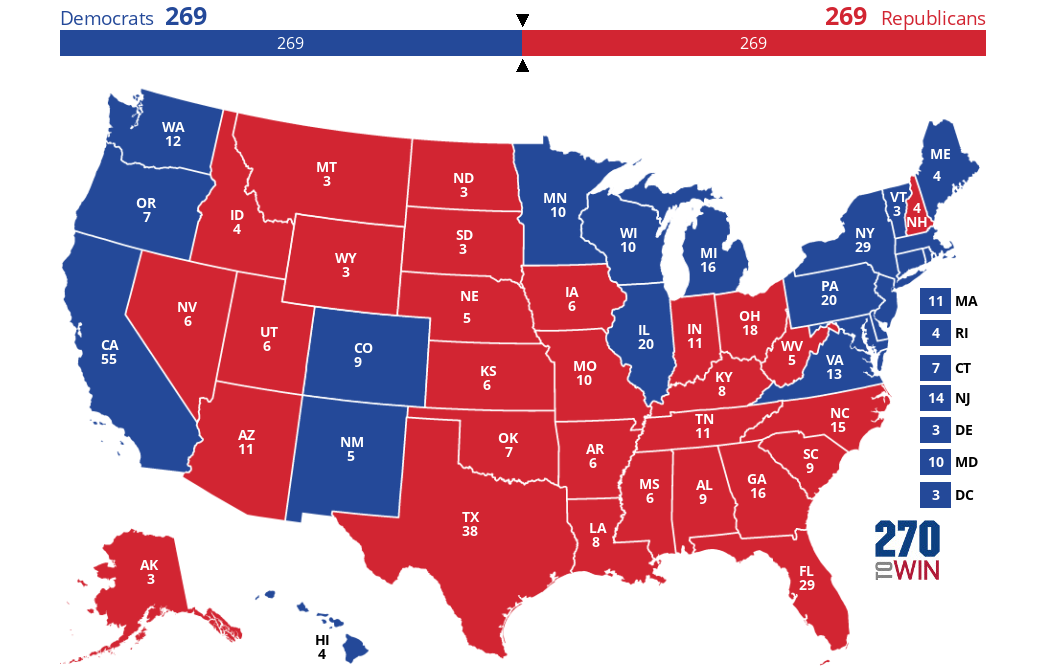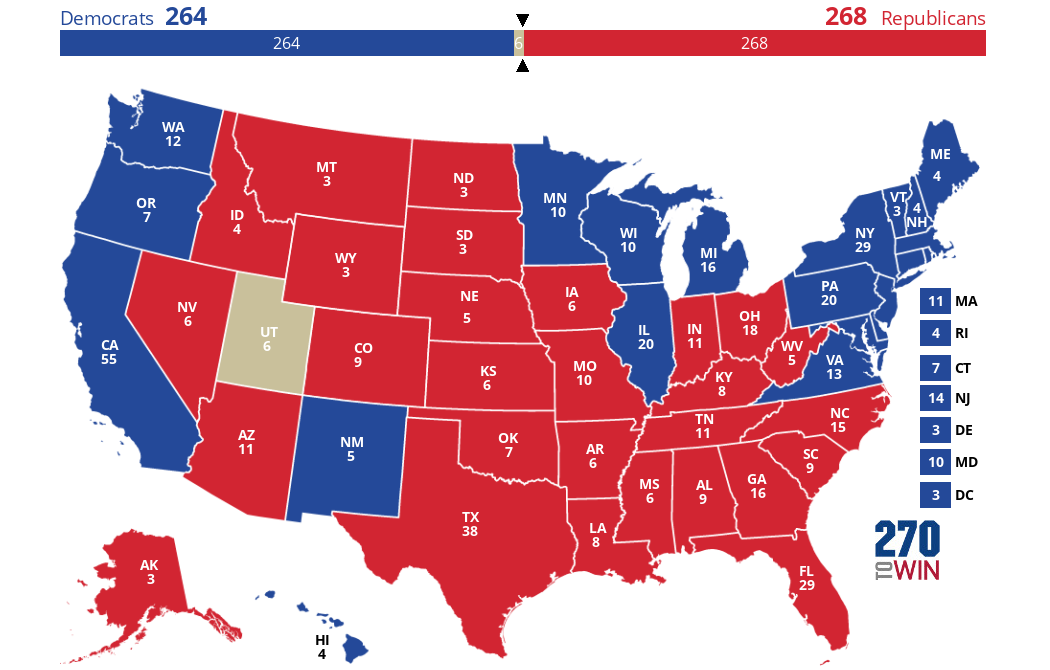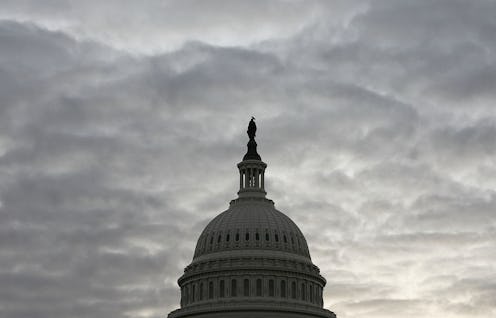News
What Happens If There's An Electoral College Tie?
Let's pretend it's Nov. 8 at 11:30 p.m., and we're all still waiting for votes to come in from Alaska and Hawaii. You're at your election night party at the house of your friend with the nice TV, but the celebratory mood you were all hoping for as this excruciating election finally ends is missing. No amount of chips and dip can save your soul. Because it's almost Wednesday, and the country is staring down an Electoral College tie.
OK, so this outcome is a longshot — at the time of writing, Hillary Clinton leads by a sizable margin, and even if Donald Trump pulls off an historic comeback and makes it close, it's unlikely that he'll win just the right combination of states that would be necessary to tie the electoral college at 269-269. Polling whiz Nate Silver puts the probability of this event at a laughable 0.3 percent. But in an election that has seemed to be governed Murphy's Law, it's worth considering what would happen in this worst-case scenario.
Below is a possible electoral map that could lead to an electoral tie, with Trump winning most of the states that he's polling a little closer in (and New Hampshire, where he isn't really):

The Constitution says that in the event of no candidate getting a majority, the result will be decided by the House of Representatives. According to Article II, Section 1:
…and if there be more than one who have such Majority, and have an equal Number of Votes, then the House of Representatives shall immediately chuse [sic] by Ballot one of them for President…
This has happened three times in the history of the United States — in the elections of 1800, 1824, and 1876. The one in 1800 was a mess of mishandled vice presidential voting that was fixed by the 12th Amendment, and such a situation isn't really possible today. In 1824 and 1876, the Electoral College didn't result in a tie; rather, no candidate won a sufficient number of votes in 1824, and 20 votes were in dispute in 1876. In both cases, the election went to the House, and it's worth noting that the representatives voted along party lines rather than follow the popular vote.
The House of Representatives will probably stay Republican after this election — especially if Democrats don't win the presidency in a landslide. So on the one hand, if there were an Electoral College tie, you'd expect Trump to come out ahead in the House. But of course, Trump's relationship with the Republican party is... complicated. There are currently 25 Republican Representatives who have said they won't vote for him. It's unclear how lockstep the Republican party would be in supporting their nominee.
There's also another weird possibility — Trump and Clinton could fail to hit 270 electoral votes because independent candidate Evan McMullin has a not-impossible chance of winning Utah:

Before running for president, McMullin worked as the chief policy director for the House Republican Conference. So it's not crazy to imagine that in a country which dislikes both Trump and Clinton, House Republicans may choose their old friend Evan, even if he loses the popular vote by a landslide. But if that happens, and politicians choose an insider largely unknown to the voters, well, the craziness would only be getting started.
